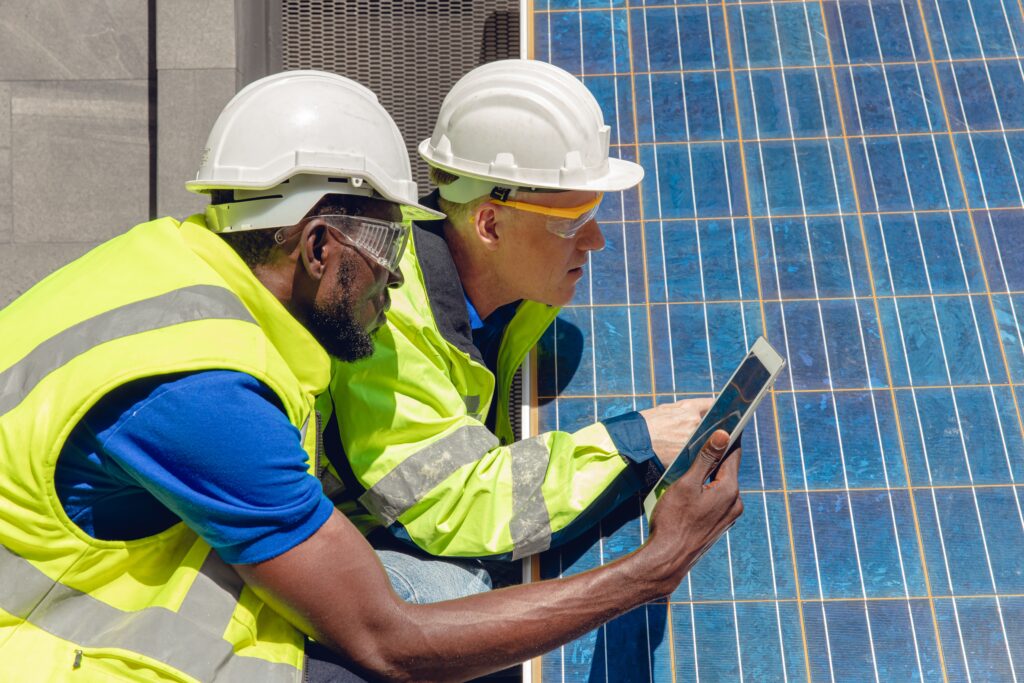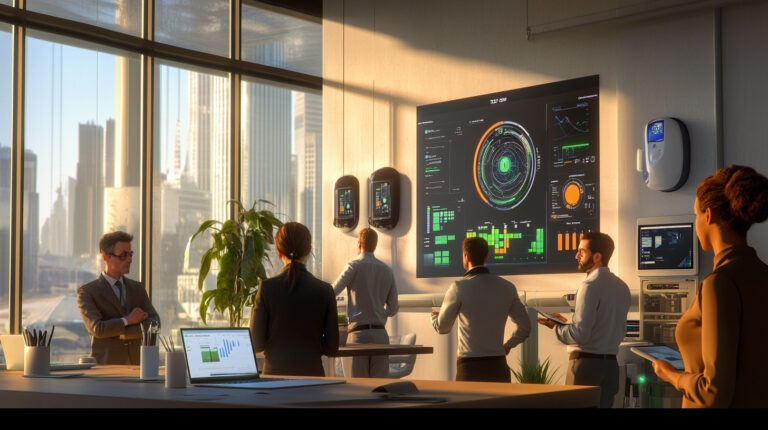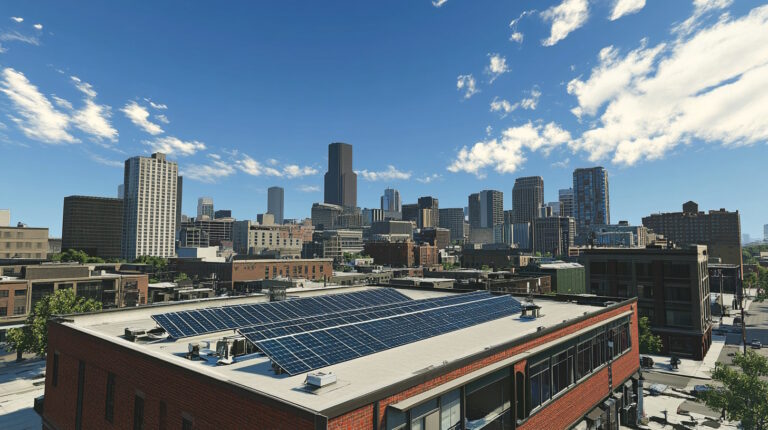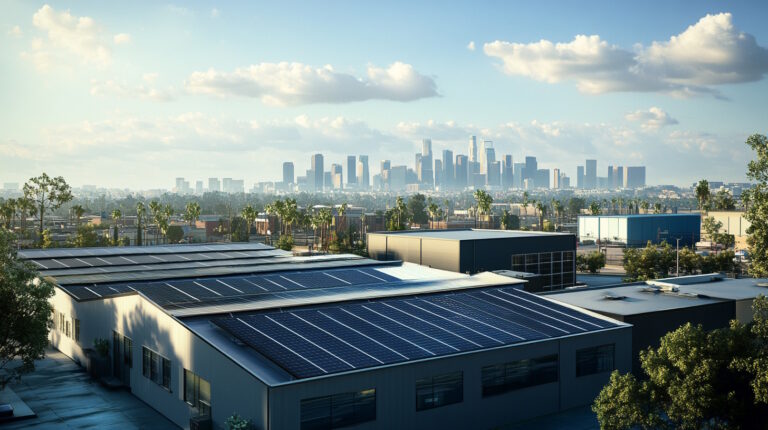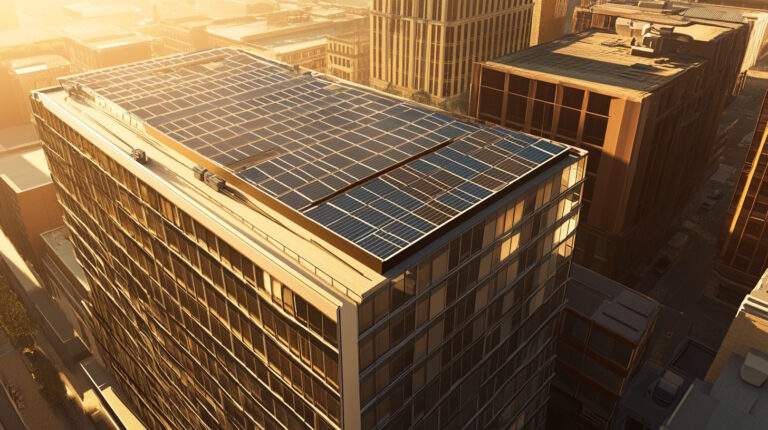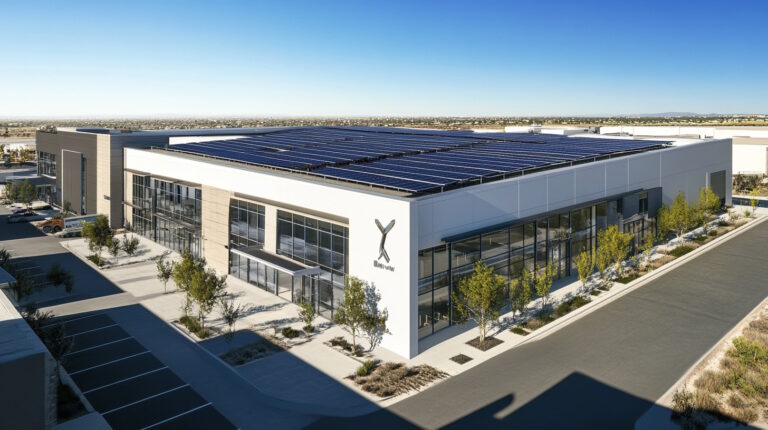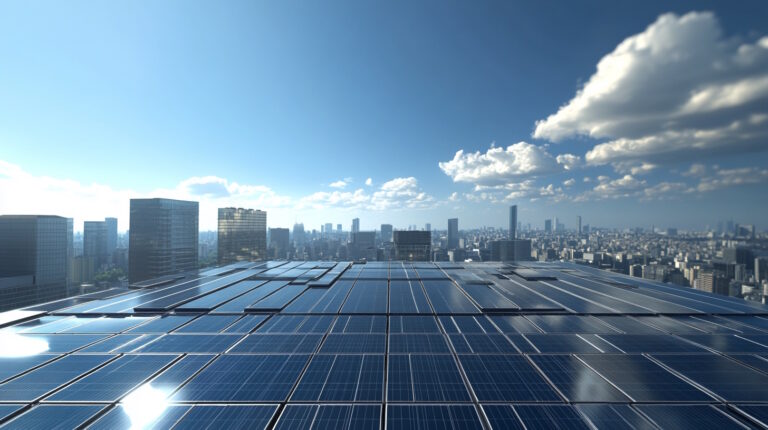Article Insights
- Discover answers to the most common Commercial Solar FAQs to help you make an informed decision about going solar.
- Learn about the financial benefits, including incentives, rebates, and the cost of commercial solar installation.
- Understand the durability and maintenance needs of commercial solar panels, and how they impact long-term value.
- Explore the steps to select the right solar installer and financing options to meet your business’s unique needs.
Why Businesses Are Choosing Solar Energy
Switching to solar energy is no longer just a trend—it’s a transformative decision for businesses looking to reduce costs, improve sustainability, and gain energy independence.
Commercial property owners and business managers are now realizing that solar is not just an eco-friendly option but also a financially sound investment.
In this article, we’ll address the most pressing questions about commercial solar systems to help you determine if this energy solution aligns with your business goals.
What is Commercial Solar and How Does It Work?
Commercial solar refers to solar energy systems specifically designed to meet the energy needs of businesses and large properties. These systems typically consist of solar panels, inverters, and sometimes battery storage.
Solar panels capture sunlight, converting it into direct current (DC) electricity, which inverters then transform into alternating current (AC) electricity for use in your building.
Depending on the system, excess energy can be stored or sent back to the grid, offering additional savings through net metering programs.
Key Benefits of Commercial Solar Panels
Installing solar panels offers a range of benefits and advantages for businesses. One of the most notable is the potential for significant cost savings on electricity bills.
Over time, businesses can redirect these savings toward other growth initiatives. Additionally, adopting solar demonstrates your company’s commitment to environmental responsibility, which can enhance your brand reputation.
Federal and state incentives, such as the Investment Tax Credit (ITC), further reduce the upfront costs, making solar an even more attractive investment.
How Much Does Commercial Solar Installation Cost?
The cost of commercial solar installation varies depending on several factors, including the size of the system, energy needs, and location.
On average, commercial solar projects can range from $50,000 to $1 million. While this may seem like a large investment, the combination of energy savings and available incentives typically results in a full return on investment within 5 to 10 years.
Businesses are encouraged to consider not only the initial costs but also the long-term financial benefits when evaluating solar projects.
What Incentives and Rebates Are Available?
One of the most compelling reasons to invest in commercial solar is the array of financial incentives available. Programs like the Federal Investment Tax Credits (FITC) allow businesses to claim up to 30% of their installation costs as a tax credit.
Additionally, many states offer rebates, property tax exemptions, and net metering benefits. These incentives can significantly lower the overall cost of adopting solar energy, making it an even more appealing option for property owners and managers.
How Long Does Installation Take?
The timeline for installing a commercial solar system typically spans several weeks to a few months, depending on the project’s complexity.
After initial consultations and energy assessments, the design and permitting stages can take a few weeks. Once approved, the actual installation usually takes about one to three weeks, with inspections and grid interconnection following shortly after.
Can Solar Panels Power Your Business Entirely?
The ability of a solar system to meet all of your energy needs depends on factors like your property’s energy consumption, roof space, and the system’s size.
Grid-tied systems often work in tandem with the local utility to ensure uninterrupted power, while off-grid systems require battery storage to handle energy demands during low-sunlight periods.
For many businesses, solar significantly offsets energy costs even if it doesn’t fully replace grid power.
Maintenance and Durability
Solar panels are known for their durability and minimal maintenance requirements. Most panels are designed to withstand harsh weather conditions, including hail and heavy snow, and have a lifespan of 20-25 years.
Routine maintenance primarily involves cleaning to remove dirt and debris and periodic inspections to ensure optimal performance. This low-maintenance profile makes solar a hassle-free energy solution for businesses.
Financing Options for Commercial Solar
There are several financing options available to make commercial solar more accessible. These include outright purchases, loans, leases, and Power Purchase Agreements (PPAs).
Each method has its advantages: loans offer ownership with manageable payments, leases allow businesses to use solar without upfront costs, and PPAs enable you to pay only for the energy produced.
Choosing the right financing method depends on your business’s cash flow and financial goals.
Choosing the Right Solar Installer
Selecting a reliable solar installer is crucial for the success of your solar project. Look for companies with certifications like NABCEP and positive reviews from past clients.
Ask questions about their experience with commercial installations, warranties, and ongoing support. A trustworthy installer will not only ensure a smooth installation process but also provide valuable guidance throughout the system’s lifespan.
Moving Toward a Sustainable Future
Switching to solar energy is a significant step toward reducing operational costs, improving sustainability, and gaining energy independence.
By addressing these Commercial Solar FAQs, we hope to have provided the clarity you need to make an informed decision.
If you’re ready to explore how solar can transform your business, contact Green Current Advisors today and take the first step toward a brighter, more sustainable future.
Commercial Solar FAQs
Costs vary widely, but average between $50,000 and $1 million, depending on size and complexity. Commercial Solar Systems Affordability
Reduced energy bills, tax incentives, and enhanced sustainability practices. Solar Energy Installation and Benefits for Commercial Buildings
Yes, options include loans, leases, and Power Purchase Agreements (PPAs). Commercial Solar Leasing vs Owning vs PPA
Federal ITC, state-level rebates, and net metering programs. Commercial Solar Federal Investment Tax Credits (FITC)
ROI typically occurs within 5-10 years, depending on incentives and energy usage.
Panels still generate energy during cloudy days, but not at night (unless paired with batteries).
Most systems last 20-25 years with proper maintenance.
Depends on energy needs; typically 10,000 square feet for a mid-sized system.
Yes, but they require battery storage and a larger upfront investment.
Look for NABCEP certification and state-specific licenses.

